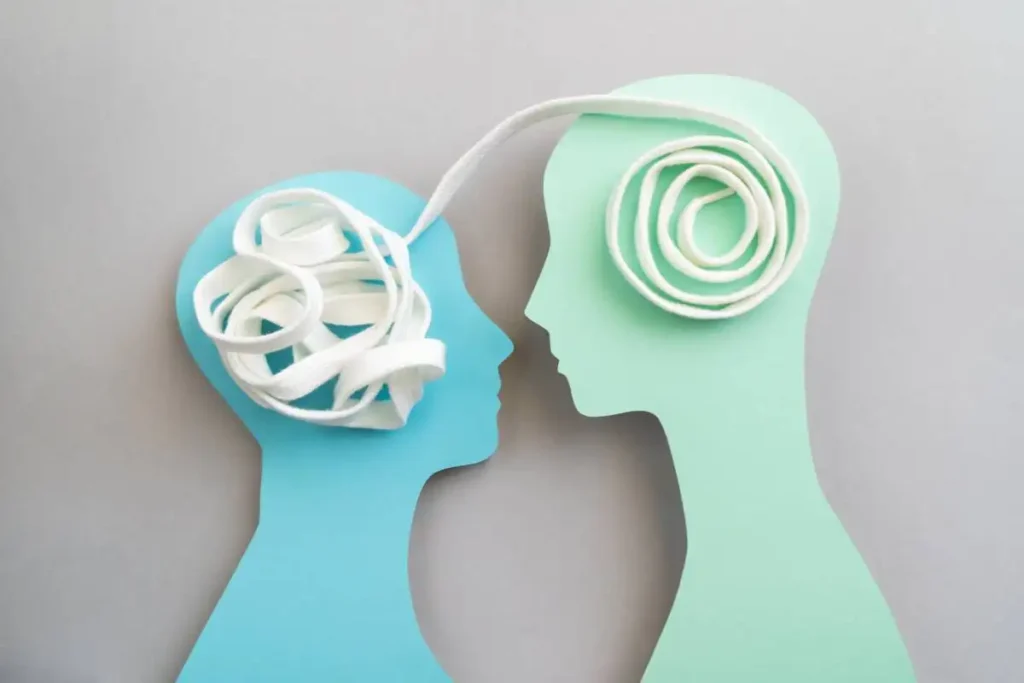Individuals with autism often experience sensory sensitivities that can affect their daily lives and social interactions.
These sensitivities may include heightened reactions to sounds, lights, textures, or even smells. For instance, a bustling restaurant may feel overwhelming for someone sensitive to noise, making it difficult to enjoy the date.
Understanding and accommodating sensory needs can transform a date from stressful to enjoyable.” – Dr. Emily Parker, Autism Specialist
Sensory overload can lead to anxiety or discomfort, impacting the overall dating experience. It’s essential to choose settings that minimize overstimulation, ensuring the date remains comfortable and enjoyable for both individuals.
Choosing the Right Location
Selecting the right location for a date can significantly impact the experience, especially for someone with autism.
A quiet and comfortable setting helps in reducing anxiety and sensory overload, allowing both individuals to engage more freely.
Consider these autism-friendly venues:
- Nature Parks: A serene environment with natural sounds can provide a calming atmosphere. The fresh air and open space encourage relaxed conversation.
- Art Galleries: These venues often have low noise levels and visually stimulating displays. They provide opportunities to discuss artwork, making for a thoughtful and engaging experience.
- Cafés with Quiet Corners: Choosing a café with cozy, quieter sections can create a comfortable space for conversation. Look for places that aren’t overly crowded during your visit.
Each of these locations not only offers a peaceful setting but also opportunities for meaningful interactions. Ensuring comfort in the environment can help foster connection and enjoyment during the date.
Planning Engaging Activities
Choosing activities for a date can enhance the experience for someone with autism. It’s essential to select options that are inclusive and cater to their preferences. Balancing stimulation and relaxation is key.
Consider these engaging activities:
| Activity Type | Stimulation Level | Relaxation Level |
|---|---|---|
| Art Class | Moderate | High |
| Nature Walk | Low | High |
| Visit to a Science Museum | High | Moderate |
| Board Game Café | Moderate | Moderate |
Indoor activities like art classes or board game cafés offer a fun way to interact without overwhelming sensory input.
Outdoor options, such as nature walks, provide a peaceful setting that encourages conversation and connection.
The key is to gauge comfort levels and adapt plans accordingly. Finding the right mix will create a memorable experience for both individuals.
Effective Communication Strategies
Clear and direct communication is essential when planning a date with someone on the autism spectrum. It helps reduce misunderstandings and creates a more comfortable environment. Here are some useful tips to enhance communication:
- Use simple and straightforward language.
- Avoid idioms or figurative expressions that may cause confusion.
- Ask open-ended questions to encourage conversation.
- Be patient and give them time to respond.
Non-verbal cues play a significant role as well. Facial expressions, gestures, and body language can convey feelings and reactions that words sometimes cannot. Pay attention to these signals to gauge comfort levels.
Active listening is crucial. Show genuine interest in what your date is saying. Nodding, making eye contact, and repeating back what they said can demonstrate that you are engaged. This approach fosters trust and openness, making the date more enjoyable for both of you.
Food Preferences and Dietary Needs
When planning a date, it’s important to consider dining preferences and dietary restrictions that individuals with autism may have.
Many people on the spectrum experience sensitivities to certain foods or textures. Common concerns include gluten or dairy intolerance, as well as aversions to strong flavors and textures.
Choosing a meal that accommodates these preferences can enhance the dining experience. Opt for simple dishes with familiar ingredients.
For instance, grilled chicken with steamed vegetables can be a safe choice. Avoid overly spicy or complex meals that may cause discomfort.
“Understanding dietary needs is vital for creating a positive dining experience. It’s about comfort as much as nutrition,” says Jane Smith, a nutritionist specializing in autism.
Before finalizing the meal, consider discussing options with your date. This not only ensures their needs are met but also opens the door for conversation. A thoughtful approach to food can make the date more enjoyable and stress-free.
Creating a Supportive Environment
Establishing a comfortable atmosphere is key when planning a date for someone with autism. Choose a setting that feels safe and inviting. Consider factors like lighting, noise levels, and seating arrangements. A quiet café or a peaceful park can provide an ideal backdrop.
Encouraging openness and trust is equally important. Engage in honest conversations and be receptive to their feelings. This creates a space where your date feels valued and understood. Don’t hesitate to ask about their preferences and comfort levels.
A supportive environment fosters connection and communication, making for a more enjoyable experience,” emphasizes Dr. Emily Johnson, a psychologist specializing in autism.
By focusing on comfort and trust, you pave the way for a positive and memorable date.
Timing is Everything
Choosing the right time for a date can significantly impact the experience for someone with autism. Many individuals thrive in familiar routines, so consider scheduling the date when they typically feel most energetic and engaged. For some, this might be earlier in the day, while others may prefer evening outings.
Pay attention to their daily routines. If they have specific times for meals or relaxation, try to plan around these.
A date that aligns with their natural rhythm can lead to a more enjoyable and stress-free experience. Remember, timing isn’t just about the clock; it’s about understanding and respecting their unique needs.
Handling Unexpected Changes
Flexibility is key when planning a date for someone with autism. Unexpected changes can happen, so staying adaptive can help create a more positive experience.
If plans need to shift, communicate openly and calmly. Let them know about the change as soon as possible to help them adjust.
Consider having a backup plan ready. If an activity doesn’t go as expected, having an alternative can ease any stress.
For instance, if the venue becomes too overwhelming, suggest a quiet walk or a visit to a nearby park. This allows for a transition without too much disruption.
“Adaptability is a strength that can turn challenges into opportunities.”
By being prepared and flexible, you can help make the date enjoyable, even when things don’t go according to plan.
Ensuring Safety and Comfort
Feeling secure is essential when planning a date for someone with autism. A comfortable environment fosters trust and allows for genuine connection. Safety measures should be in place to create a worry-free experience.
Here are some safety tips to consider for a smooth date:
- Choose familiar locations where your date feels at ease.
- Keep emergency contact information handy.
- Communicate openly about any concerns or preferences.
- Plan for potential sensory overload by knowing when to take breaks.
- Ensure that your date knows how to exit a situation if it becomes uncomfortable.
By prioritizing safety and comfort, you set the stage for a positive and enjoyable date.
Reflecting on the Date
Reflection plays a vital role in improving future dating experiences. Evaluating how the date went helps both individuals understand what worked well and what could be adjusted. This process fosters growth and connection.
Gathering feedback is essential. Ask open-ended questions that encourage honest responses. For instance, “What did you enjoy most about our time together?” This not only shows that you value their opinion but also paves the way for better dates in the future.
“Every date is a learning experience that helps us grow together.”
By taking time to reflect and communicate, you can create more enjoyable and meaningful experiences moving forward.
FAQ Section
Addressing common questions can help ease concerns when planning a date for someone with autism. Here are some frequently asked questions:
What should I know before the date?
Understanding their preferences and any sensory sensitivities is crucial. Discuss what environments make them comfortable.
How can I make the date enjoyable?
Choose activities that allow for interaction without overwhelming sensory input. Calm, engaging environments are often best.
What if they seem uncomfortable during the date?
Be attentive to their body language. If they show signs of distress, it’s okay to take a break or change the activity.
How important is communication?
Clear and direct communication is essential. Be open about intentions and feelings, and encourage them to express themselves too.
Should I plan for unexpected changes?
Yes, flexibility can help. Having a backup plan can reduce stress if things don’t go as expected.
These insights can lead to a more fulfilling dating experience for both partners.
Concluding Thoughts
Planning a date for someone with autism involves understanding their unique needs and preferences. Focus on creating a comfortable environment, choosing suitable activities, and maintaining clear communication. Each date is an opportunity to build trust and connection.
Remember, every effort made contributes to a positive experience. Approach dating with patience and openness, and you may discover meaningful moments together. Enjoy the journey!







